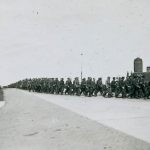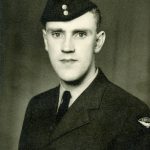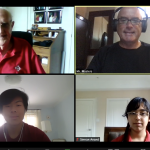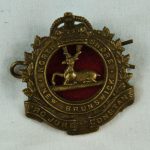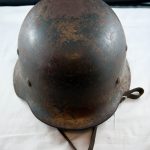George Zwaagstra was born August 9, 1933, in Friesland, a northern and low-lying province in the Netherlands. George grew up in this largely agricultural area, and when the Second World War was about to begin, George was just starting school. When the Germans did invade, the Dutch surrendered after five days of fighting, and the German occupation began. George remembers that it was not too severe initially, but he remembers that over time the mindset changed and a deep-seated mistrust built up. George’s parents, who ran a grocery store, became involved in the resistance, and their young son George did too, serving as a messenger boy. On several occasions the family found themselves investigated by the Germans, at the family home and business, and George’s father was imprisoned on one occasion – and George learned much of this after the war, when he found some of his father’s writings. Liberation came for George’s region in 1945, after the devastating Hunger Winter that had impacted so much of the Netherlands. The Canadians freed George’s village in April, and four soldiers ate dinner at his house, bringing along their extra rations and leaving George with some souvenirs. Eventually George and his family made the decision to emigrate to Canada, and they were on their way in 1951, arriving at Pier 21 in Halifax, where George and his family found their way in the new rhythms of the postwar world. George was referred to us by contacts at the Pier 21 Museum in Nova Scotia, and in the pandemic summer of 2020 he was interviewed by Jay Lu, Simran Anand, and Scott Masters.
Videos
Click next video below to keep watching
